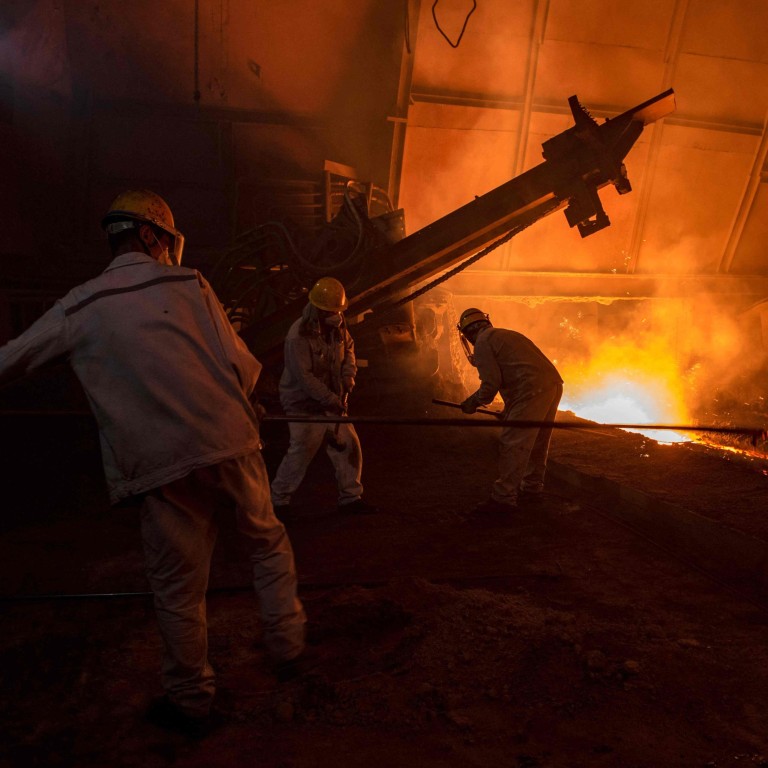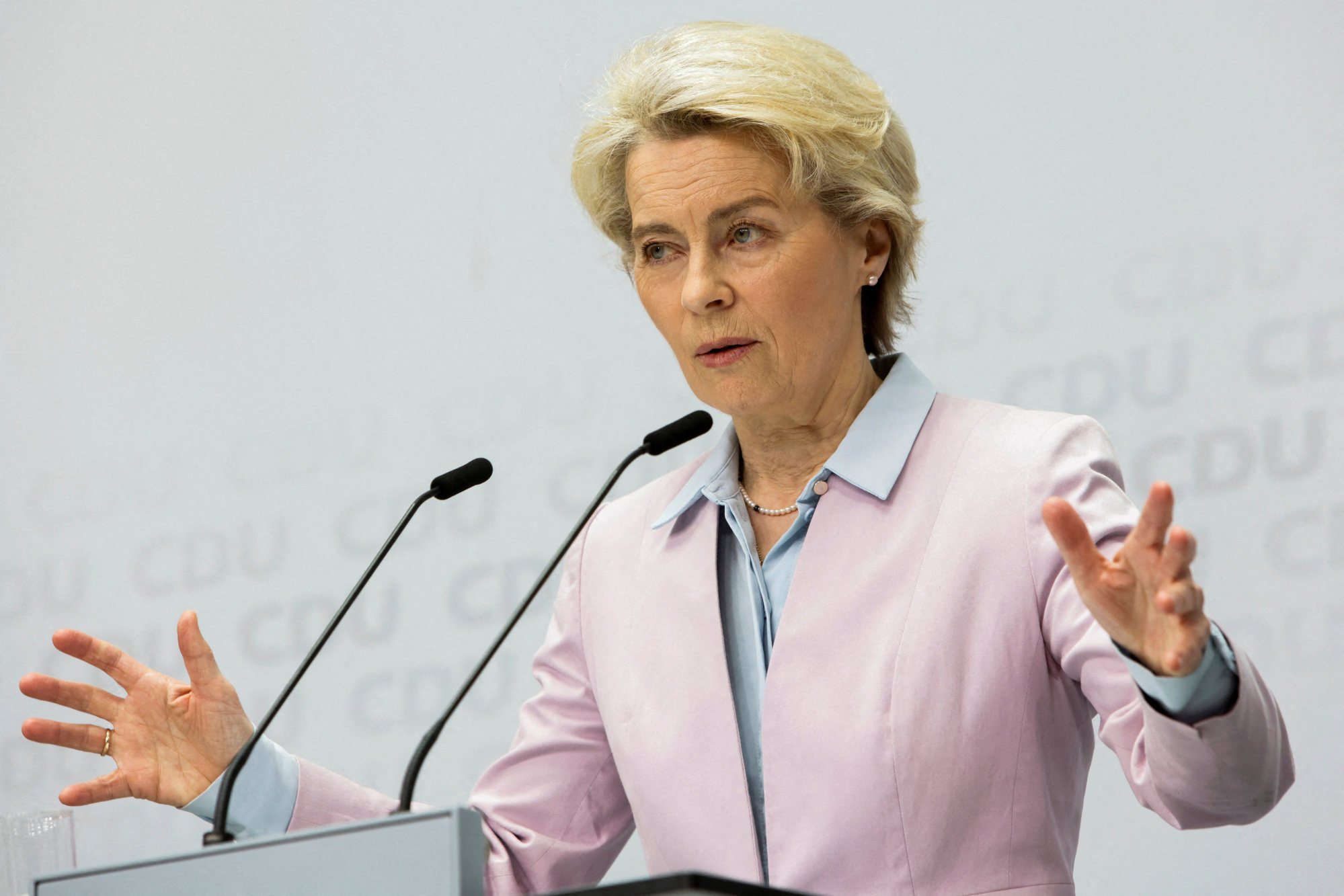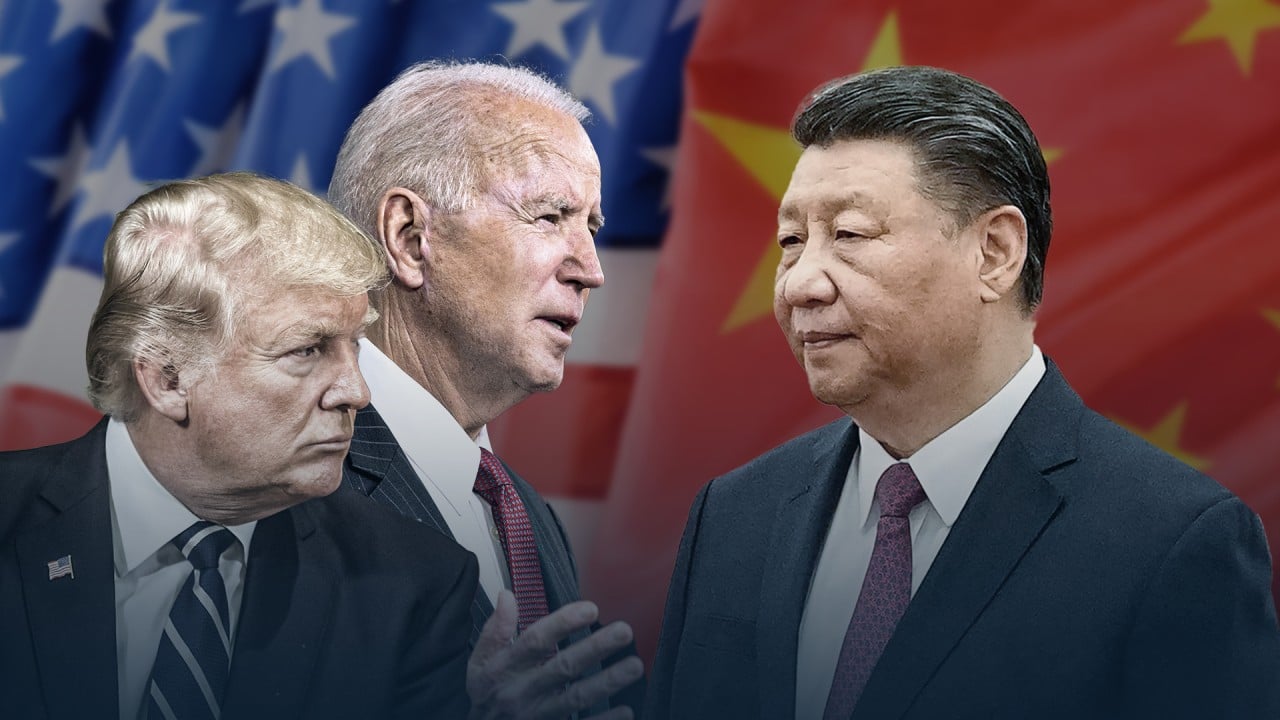
EU to investigate Chinese steel and aluminium sectors, with tariffs looming, in deal with US
- Inquiries and possible tariffs are said to be part of an agreement with US, which is set to drop Trump-era tariffs on imports of European steel and aluminium
- Announcement by US President Joe Biden, European Commission President Ursula von der Leyen and European Council President Charles Michel is expected next week
The European Union is set to investigate overcapacity in China’s steel sector, a move that could see a tariff of 25 per cent imposed on imports from the world’s second largest economy.
Aluminium is also in the EU cross hairs, with officials poised to commit to a 10 per cent tariff on shipments from China and other non-market economies.
The probe is part of a political agreement with the United States, set to be announced during a bilateral summit in Washington next week, that would also end some existing US tariffs on EU steel and aluminium imports, according to EU sources familiar with the plan.
The plan is expected to be announced by US President Joe Biden, European Commission President Ursula von der Leyen and European Council President Charles Michel on October 20.
The deal, which has not been finalised, would extricate European companies from tariffs on both metals imposed by the US during the Donald Trump administration.
And the inquiry, while not naming Beijing, would include any non-market economies suspected of subsidising their industries; China would fall into that category.
Thus, Brussels would both tackle Chinese subsidies that are seen to have warped the global metals industries, and shed some of the last vestiges of the Trump administration’s trade war with its transatlantic allies.
The agreement would also free up space for EU and US policymakers to work on the legal and technical details of the EU’s carbon border tax. There is no agreement yet on how US steel companies would deal with the mechanism, whereby European importers will pay duties corresponding to the cost of emissions generated in production.
China bites back as EU launches probe into electric vehicle industry
The “club approach” to steel and aluminium tariffs will eventually be open to other “like-minded partners”, although no third countries will be joining immediately, one source said.
The move, however, will anger China, which has warned Brussels against taking any action against its steel industry.
“Learned that the #EU may announce anti-subsidy probe into Chinese steelmakers. As the largest exporter, #China contributes to resilience of global supply chain of steel. EU’s action will only hit the steel industry and hamper global recovery,” the foreign ministry’s top official for Europe, Wang Lutong, wrote in a post on X, formerly known as Twitter.
The inquiry would be coming as trade tensions soar between the EU and China.
It is anticipated that the new tariffs, should they come to pass, would be on top of EU tariffs already imposed on some Chinese steel products.
And Brussels has already launched a probe into subsidies in China’s electric vehicle sector, having seen imports surge from a very low base.
Several European commissioners have also floated the prospect of a separate probe into Chinese-made wind turbines, though that is unlikely to happen any time soon, two sources said.
EU imports of Chinese wind turbines have actually decreased over the first eight months of 2023, customs data show, and there is little appetite for opening another front with Beijing among some parts of the commission.

Others, however, suspect that China has subsidised components that are used in turbines. The EU competition chief Didier Reynders said on French television this week that “in the wind energy sector there are components that could be in competition with Chinese components”.
“If there is a possibility of too much aid on the Chinese side … we could open an investigation in the same way [as electric vehicles],” Reynders said.
An EU official said it was “extremely complex” and that the bloc was “nowhere near” getting the level of evidence required. However, the official warned, “it is within the realm of the possible”.
EU energy commissioner Kadri Simson refused to rule the probe out on a panel discussion a day before flying to China for a series of meetings. “Never say never,” Simson said.


